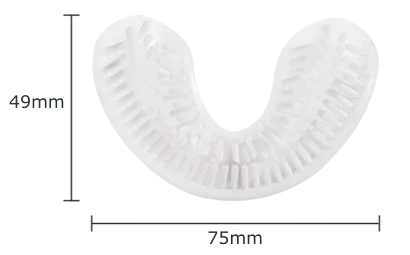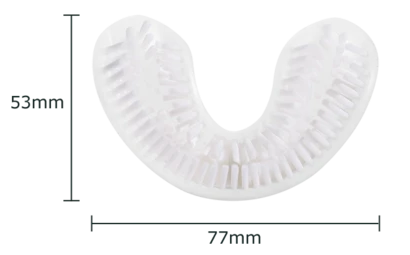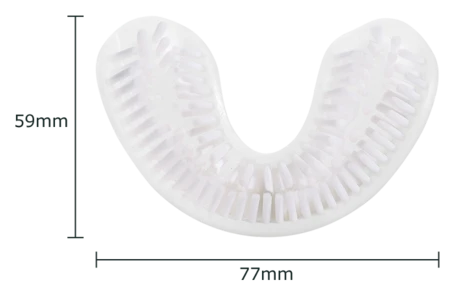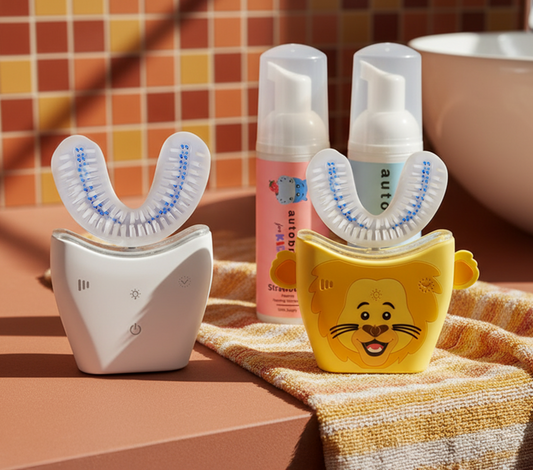
The Functions and Benefits of Saliva
Let’s be real – unless you’re sick or dehydrated – you probably aren’t thinking about your saliva production. In fact, you may have not thought about it at all. Yet, saliva is key to your dental health and is essential to keep your mouth healthy and your digestion functioning.
But what is saliva really? How does it help your teeth? And what can you do to create “healthy” saliva?
Let’s start by spitting out some facts…
What is Saliva?

Saliva, commonly referred to as spit, is a clear liquid that is produced by various glands in your mouths. Most saliva is made up of 98% water with the remaining 2% consisting of minerals, mucus, proteins, antibacterial substances, electrolytes, and other enzymes.
The Functions of Saliva
Have you ever eaten a bunch of Saltine crackers, and noticed that it got harder and harder to chew and swallow? This is a great example of how saliva (and the lack of it) truly affects the way we are able to taste, swallow, and digest food.
Let’s go over a couple of other main functions of saliva.
Saliva Lubricates Your Mouth
One of the most obvious and vital functions of saliva is that it keeps your mouth lubricated.
Your mouth is made up of soft and delicate tissues and muscles that can be easily damaged when dried out. For example, those that struggle with cottonmouth or a lack of saliva are more prone to mouth sores, cracked or chapped lips, and even accidentally biting their cheeks or tongue.
Proper saliva helps you avoid these mouth injuries and enjoy eating, talking, and even laughing with ease.
Saliva Cleans Your Mouth
After finishing a meal, it’s common for small food particles to be stuck in-between the crevices of your teeth. If your teeth aren’t brushed quickly after, bacteria will start feeding off these particles resulting in a bad odor in your mouth.
Saliva, however, helps slow down this process by regularly flushing the debris off the tongue and teeth.
Saliva Helps Your Digestion
Saliva is composed of enzymes that help break down food to produce nutrients that your body needs and absorbs. This makes it the key component to having efficient and effective digestion.
Simply put?
Saliva helps you chew your food and takes some hard work off of your stomach.
Saliva Gives You Taste
Imagine walking into an ice cream shop and every bucket of ice cream on display was vanilla. That’s not nearly as exciting as having 20 different options to choose from and enjoy, right?
If you're a foodie like myself, then it’s about time you start thanking your salivary glands for allowing you to taste a variety of flavors. Saliva helps dissolve taste molecules that react with our taste buds and make it so we can differentiate flavors of food.
Saliva Keeps Your Teeth Healthy
Last but certainly not least, your saliva helps you fight tooth decay.
The foods you eat range in acidity. More acidic foods like fruit, coffee, and candy weaken your tooth’s enamel and make you more prone to developing cavities. But no need to fear! This is where your sidekick, saliva, comes to the rescue. Saliva helps neutralize the pH levels in your mouth.
How Do You Produce Saliva?

Saliva is produced through your salivary glands which are positioned in each cheek, near your front teeth, and at the bottom of the mouth. Surprisingly, the average person produces between two and four pints of saliva each day!
Tips and Tricks To Keep Your Saliva Healthy
Now that you’ve learned just how important your saliva is to your mouth and body, here are some practices that can help you maintain healthy saliva.
Eat More Vegetables
Aside from keeping your body healthy, vegetables can also help your dental health. A lot of vegetables contain alkaline components that keep the pH levels balanced in your saliva. Vegetables like asparagus, broccoli, green beans, and spinach are some of the best green options to keep your saliva healthy.
Follow a Good Alkaline Diet
Alkaline is a powerful substance that keeps the pH levels in our saliva at 7.5 and higher. If you want to ensure healthy saliva for you and your kiddos make sure to choose food and beverages that have lots of alkaline.
Limit Bread and Sugar Intake
Carbohydrates like bread and sugary food lower the pH level in your saliva. Like all foods, it’s important to eat these in moderation.
Reduce Caffeine and Alcohol Intake
Alcohol and caffeine contain acidic substances that can reduce the pH level in your saliva. Limiting your caffeine and alcohol intake can help keep the pH levels in your saliva balanced.
Drink Lots of Water
Water helps wash away the acidic properties of food or beverages, helping to keep the pH levels balanced in your saliva.
Final Thoughts…

Saliva helps our bodies in so many ways. Without it we would be able to get energy from digestion, maintain healthy smiles, or even talk comfortably with friends and family. If you are worried about your own saliva production, talk to your dentist about possible solutions.












